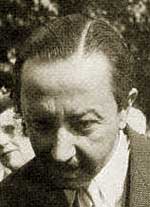Abdul-Ilah

Irakisk emir og regent 1939-1953. Blev fordrevet af den protyske Rashid Ali 1941. Genindsat med britisk hjælp 31. maj samme år.
- Habbaniya, 1941
Abdul Ilah, or `Abd al-Ilah (b. Nov. 14, 1913, at-Ta`if, Hejaz [now in Saudi Arabia] - d. July 14, 1958, Baghdad, Iraq), regent of Iraq (1939-53). He was the son of the Hashemite king Ali ibn Hussein of the Hejaz (northwestern Arabia), who was driven from Arabia by Abdul Aziz in 1925. Abdul Ilah accompanied his father to Iraq. In 1939, on the death of King Ghazi, he was appointed regent for his three-year-old nephew, Faysal II. Abdul Ilah was an Iraqi nationalist who relied on the British-supported tribal sheikhs as a counterforce against the growing urban nationalist movement. During World War II, Iraq's government was strongly pro-British, until the ardent Anglophobe Rashid Ali al-Gaylani succeeded Nuri as-Said as prime minister. The new prime minister sought close ties with Nazi Germany to release Iraq from British domination. Abdul Ilah and Nuri as-Said both were proponents of close cooperation with Britain and pressed Rashid Ali to resign. In response, the army surrounded the royal palace in Baghdad on April 1, 1941. The regent and his entourage escaped to Habbaniyah, from there to Basra and thence to Amman in Transjordan. Rashid Ali and four generals dubbed the "Golden Square" announced that the temporarily absent regent was deposed. The British quickly intervened by landing forces at Basra on April 19, and the revolt was suppressed by the end of May, and Abdul Ilah reinstated as regent. He maintained strong ties with the West. When King Faysal reached legal age on May 2, 1953, the regent relinquished his functions but remained as the young king's chief adviser and companion and became crown prince. He accompanied Faysal on his state visit to Britain in 1956. He was shot in the royal palace on July 14, 1958, when a revolution broke out in Baghdad during which Faysal was also killed.